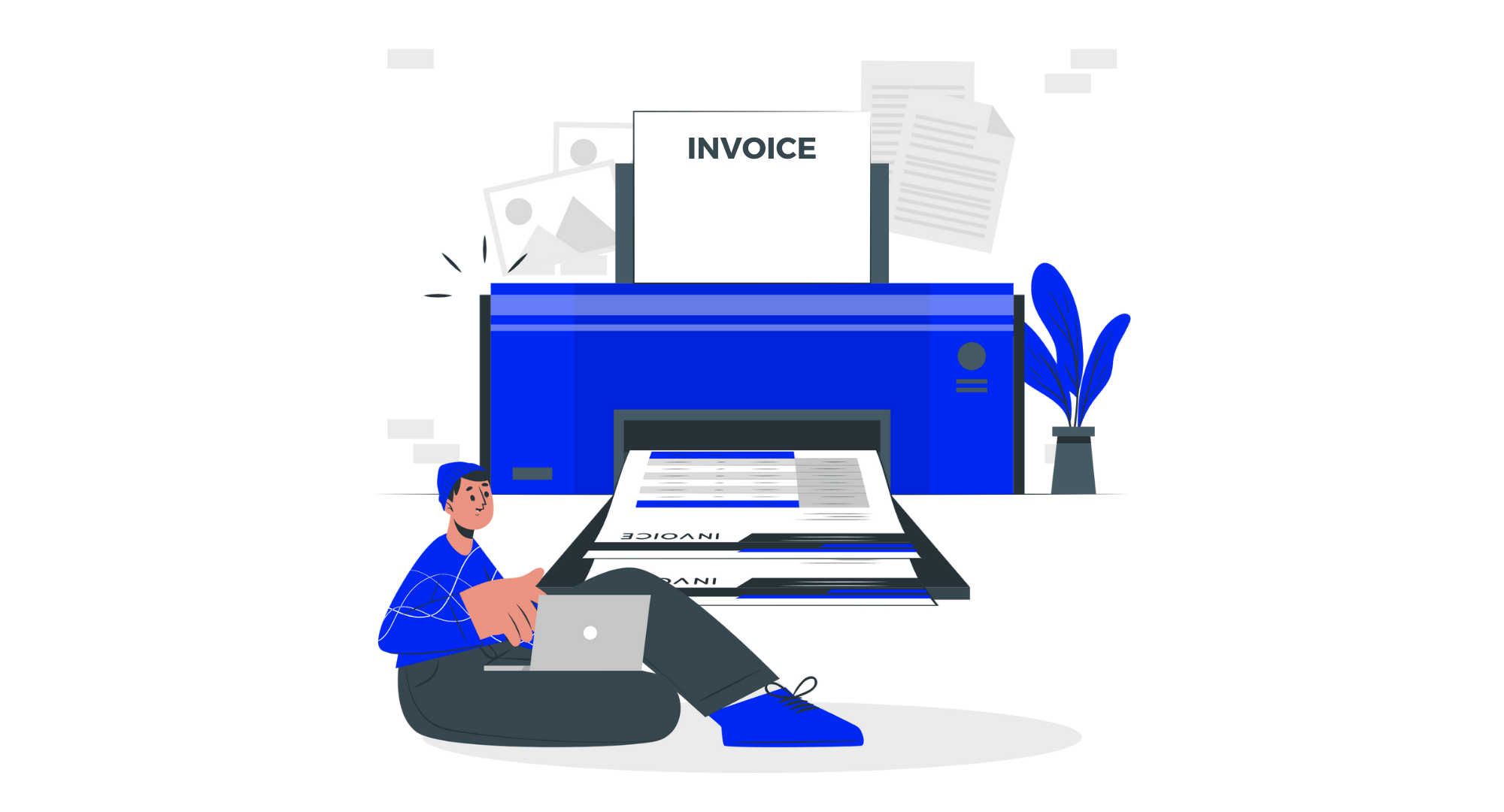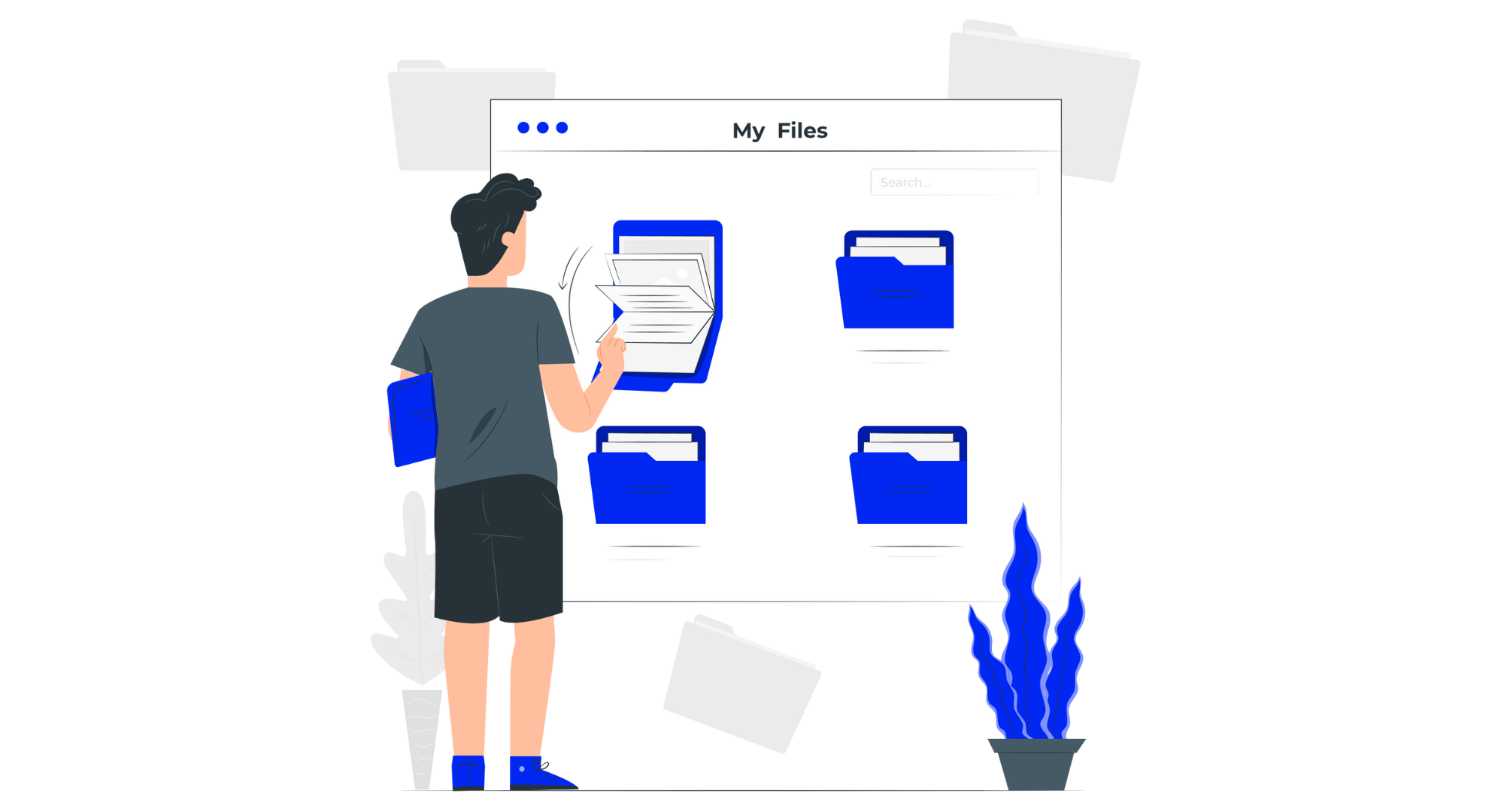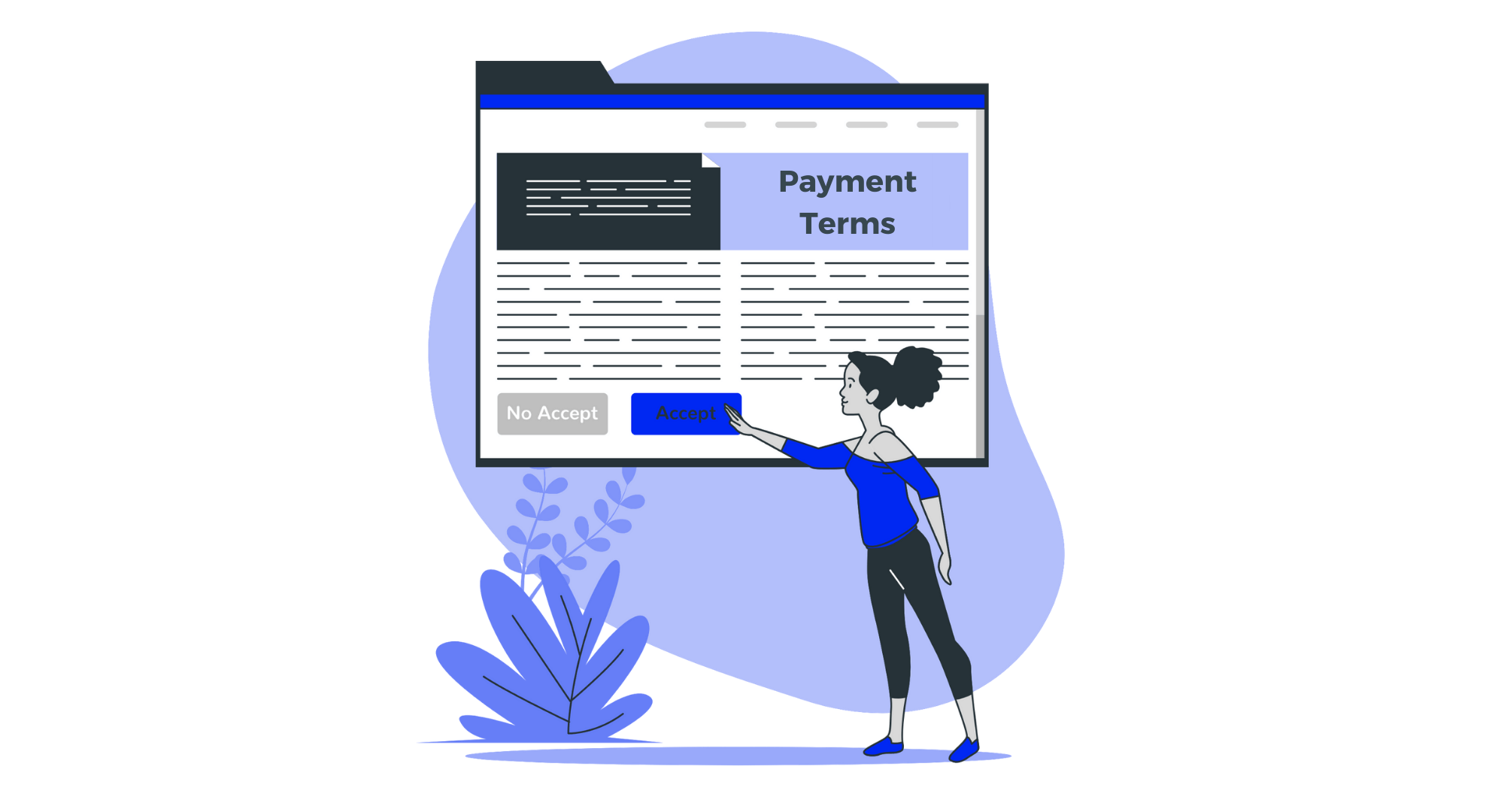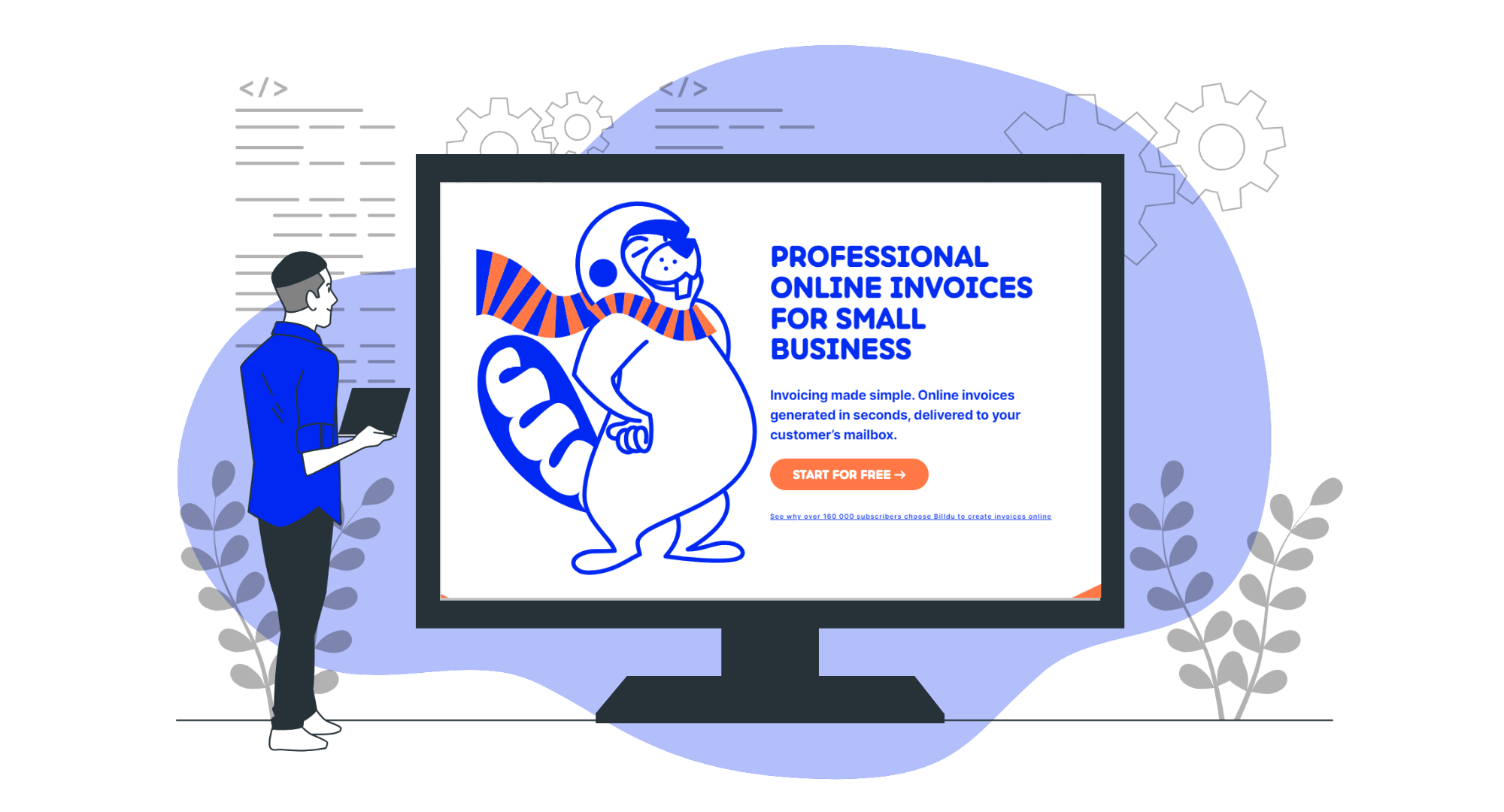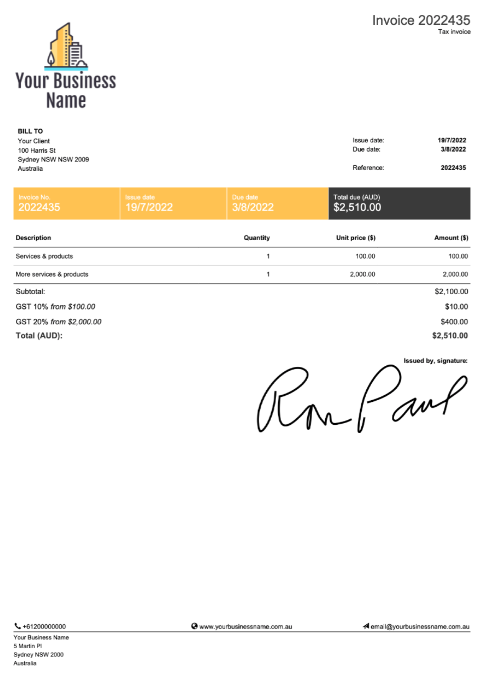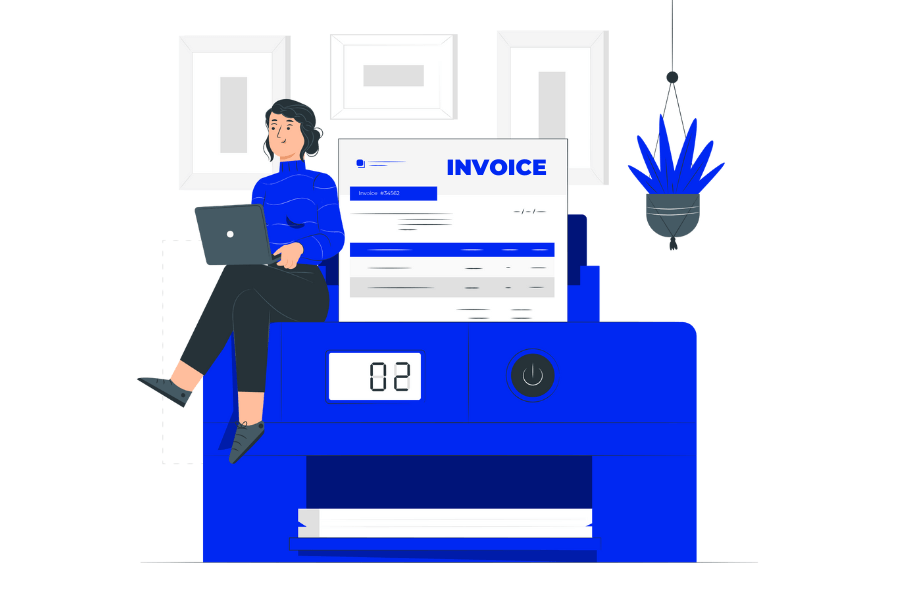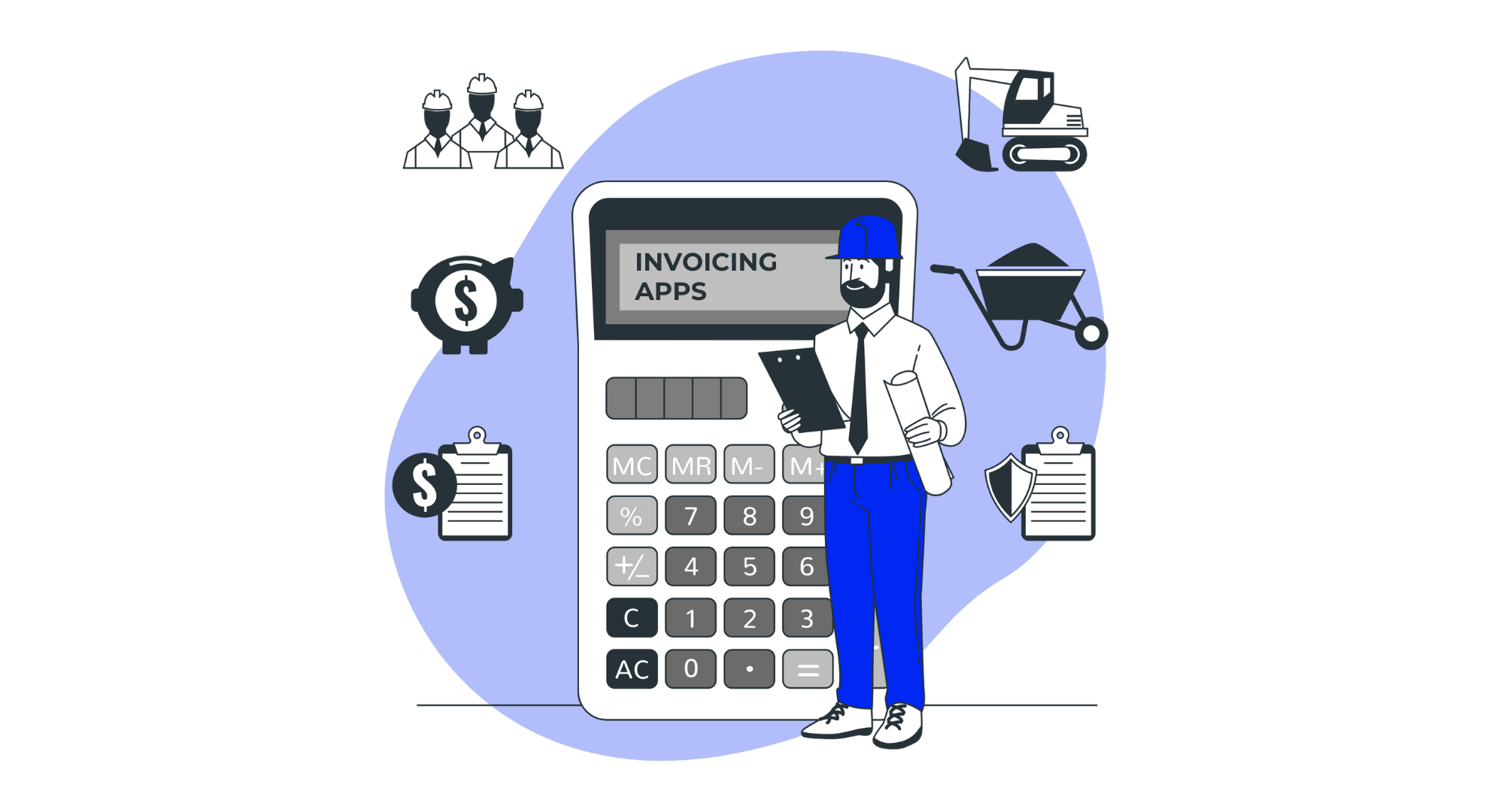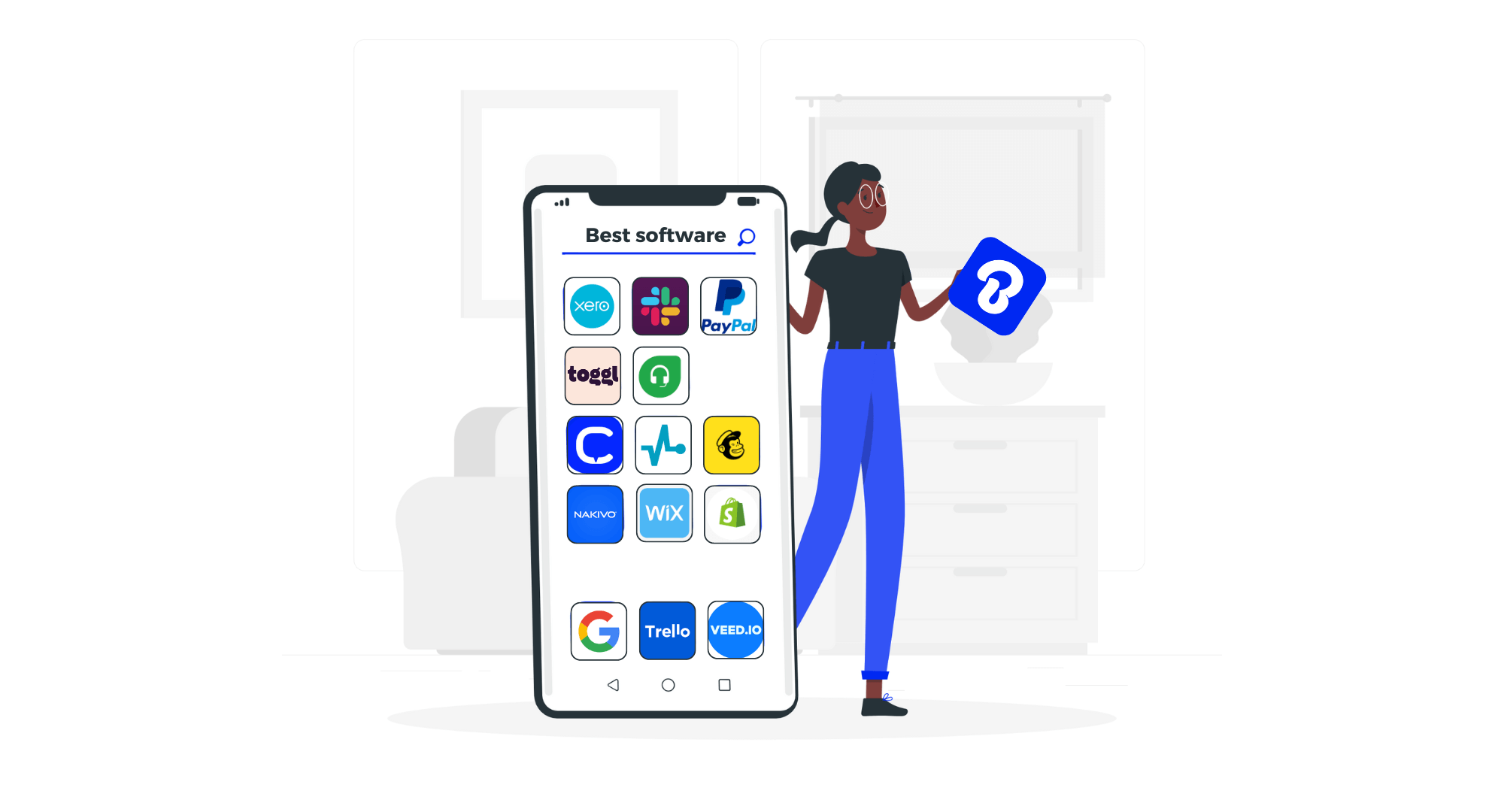
Foreigners often joke about Australia being the “upside-down” country, where everything’s turned on its head. And while this benign joke mostly refers to the continent’s geographical location and murderous wildlife, it’s also relevant to Australia’s laws regarding self-employment and invoicing.
So, to help you make sense of it all, in this article, we’ll cover everything you need to know about becoming a “sole trader” in Australia and what that means for your invoicing processes.
Key Takeaways
- A sole trader invoice in Australia must include specific details like ABN, contact information, and a clear description of the services or goods provided.
- Utilizing an invoice template designed for sole traders can streamline the billing process, ensuring all necessary legal and financial information is included.
- Knowing how to invoice as a sole trader in Australia involves understanding the tax implications, such as GST, and accurately incorporating them into invoices.
- Efficiently managing sole trader invoices means keeping thorough records for tax and business performance tracking purposes.
- Personalizing your sole trader invoice template can enhance your professional image and help establish stronger relationships with clients.
What Is a Sole Trader?
To put it simply, the sole trader definition is a self-employed person who runs their own business. That means that in the eye of Australia’s law, you and your business are one and the same.
In other words, you have full control over your company, its assets, profits, and taxes. However, you’re also personally responsible for your business’ conduct and any damage it may cause to your wealth. This is called sole trader public liability.
Clearly, there are both advantages and disadvantages to becoming a sole trader. However, you must consider several things before deciding whether to register as one. And the easiest way to do that is to compare the setup against other structures.

Sole Trader Vs. Limited Company: What’s The Difference?
Whenever an Australian decides to kick-start their self-employment journey, they tend to choose between becoming a sole trader or starting a limited company. Here’s what you need to know about both before you make a decision.
Sole Trader | Limited Company | |
Definition | A business owned and operated by a single individual. | A legal entity separate from its owners, with shareholders, directors, and limited liability. |
Advantages | + Simple and inexpensive set-up. + Private business affairs. + Simplified accounting. | + Limited liability, protecting personal assets. + Perceived as more credible and trustworthy. + Potential tax advantages, like lower corporate tax rates. + Easier to raise capital by issuing shares. + Easy transfer of ownership. |
Disadvantages | – Unlimited personal liability, risking personal assets. – Limited access to fund-raising options. – Limited access to finances. – Limited business scalability due to personal capital and capacity. – Sole responsibility for business decisions and operations. | – More complex and expensive to set up and maintain. – Greater regulatory requirements and compliance obligations. – Risk of shareholder and director conflicts. – Less privacy due to public information disclosure. – Potential for double taxation for both corporate and personal dividends. |
Set-Up Costs | Obtaining an ABN: $0 Registering a business name: $42 (1 year), $98 (3 years) Establishing a separate business bank account: $ varies | Obtaining an ABN: $0 Reserving a company name: $59+ Registering your company: $576 Registering a business name: $42 (1 year), $98 (3 years) Establishing a separate business bank account: $ varies |
Record-Keeping | Business income and expenses go into your individual tax return using a separate schedule. No need to lodge a separate tax return for business. Must keep financial records, including tax returns, for 5 years. Must notify government agencies of any business changes within 28 days. | You must lodge your own tax returns. Must keep tax records for at least 5 years. Must keep financial records for at least 7 years. Records must track and explain transactions and financial status. Records must offer true and fair financial statements for audits. Companies are subject to annual review by the Australian Securities and Investments Commission (ASIC). Companies must have a registered officer and a principal place of business. Companies must hold regular meetings, and hold a written record of meetings and resolutions. Must notify government agencies of any business changes within 28 days. |
Business Income | Business revenue is viewed as personal income, meaning you must also handle business tax. You can claim deductions for business expenses. You can freely withdraw money from your business account. | Revenue belongs only to the company, even if you are the owner or primary shareholder. Must have a separate business bank account. You can receive a wage or managerial fees but can’t withdraw money directly. Any money received from the company must be included in your individual tax return. |
Business Debt Liability | You are personally responsible for taxes, fees, and lawsuits. There is no division between business and personal assets. Assets in your name can and will be used to pay off business debts if necessary. | The company is liable for taxes and fees. Your personal assets can also be at risk if you’re the owner or primary shareholder. As a director, you are personally liable for pay-as-you-go (PAYG) withholding and superannuation debts. Even when you cease as a director, you are liable for the period you were a director. A company can own property or assets, and these belong to the company – not the directors nor the shareholders. The company may sell these assets to help pay its debts. |
Insurance | Insurance is determined by business type. This can include insurance for injuries, death, product damages, etc. Sole traders aren’t covered by workers’ compensation insurance. You must pay workers’ compensation insurance if you have employees. | Insurance is determined by business type. Directors and officers’ liability insurance is not obligatory but recommended. The company must pay workers’ compensation insurance if it has employees. Generally, directors will not be held liable for the debt of a WorkCover claim. The company is liable. |
Access to Finances | A separate business account is not necessary.You can freely withdraw funds as you see fit. | Must have a separate business account.You can receive a wage or managerial fees but can’t withdraw money directly. |
Control of Business | You have full control over the business activities.You are personally liable for any misconduct or unlawful activities. | The director has full control over business activities.Some resolutions still must be identified as company decisions.If there is more than one director, the responsibilities and decision-making ability must be shared. |
Ongoing Costs | You must continually update your business name registration.This costs $39 for 1 year, or $92 for 3 years. | Different fees may apply to your company at different points in time, depending on your business operations. Your company has an annual review date, usually the same date it was registered. Shortly after this date, ASIC will issue an annual statement and an invoice. You need to pay the annual review fee to keep your entity registered. |
Closing Your Business | You need to cancel your ABN and cancel your business name within 28 days of ceasing trading. | Closing a company is more complex than just ceasing trading. A company needs to be formally deregistered so that it ceases to exist as a legal entity. |
Employing People | Can employ people as long as you: Provide workers’ compensation insurance. Understand your tax and superannuation obligations. Understand your employees’ entitlements. | Can employ people as long as you: Provide workers’ compensation insurance. Understand your tax and superannuation obligations. Understand your employees’ entitlements. |



